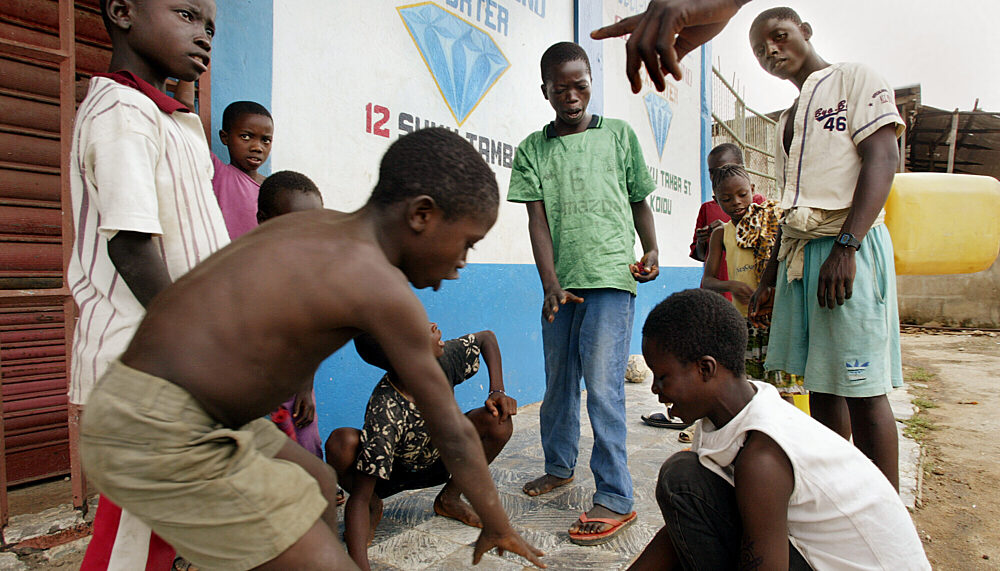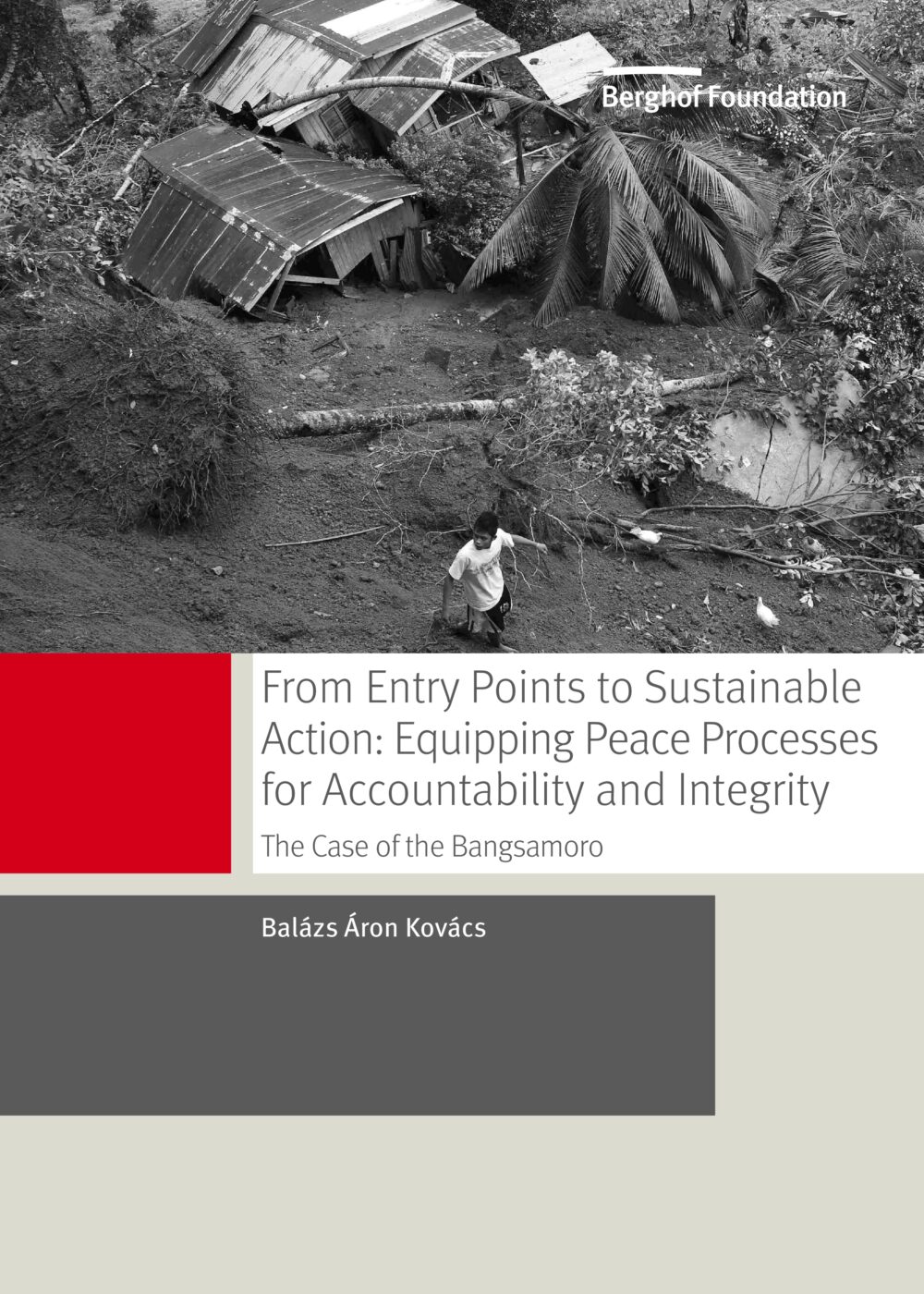FEATURE | 24 Jul 2025
Bridging the divide: How peacebuilding and anti-corruption can work together

Pursued separately, peace and anti-corruption efforts can backfire. Aligning them is crucial for building just, inclusive and lasting governance.
Over the past decade, there has been growing recognition within both the peacebuilding and anti-corruption communities that corruption is not merely a governance issue, but also a driver, enabler and consequence of violent conflict. Despite this shared understanding, meaningful collaboration between the two fields remains limited in practice. At the Berghof Foundation, we see inclusive governance and accountability as central to building sustainable peace. This is why we have made it a strategic priority and established a dedicated working group to explore how corruption and peacebuilding intersect and how responses can be better integrated.
While peacebuilders and anti-corruption actors often aim to support inclusive and accountable governance, they tend to approach this goal with different assumptions, tools and entry points. This disconnect can result in blind spots or unintended consequences. For example, peacebuilding efforts that overlook corruption may end up legitimising or empowering corrupt networks, while anti-corruption reforms that ignore local political dynamics can disrupt delicate balances and destabilise fragile peace agreements. Bridging these gaps is not only necessary but urgent.
Peacebuilding efforts that overlook corruption may end up legitimising corrupt networks, while anti-corruption reforms that ignore local political dynamics can destabilise fragile peace agreements.
Rethinking corruption as a system of governance
In many conflict-affected contexts, corruption is not simply a matter of individual wrongdoing or institutional weakness. Rather, it is often systemic and embedded in the fabric of formal and informal governance. Practices labeled as corrupt may be driven by group survival, power preservation, or mutual obligation, particularly where state services have collapsed.
This challenges conventional anti-corruption approaches that rely heavily on formal oversight mechanisms, legal reform and institutional capacity building. Our Board Member Diana Chigas highlighted in a recent presentation to the Berghof Foundation that effective peacebuilding strategies must also account for informal power dynamics, social norms and the political economy of conflict. In such environments, corruption is frequently not the breakdown of governance, but the system of governance.
The vicious cycle of conflict and corruption
The relationship between corruption and conflict is mutually reinforcing. Corruption can intensify inequality, fuel grievances and undermine trust in institutions, which can generate conflict. Violent conflict often creates opportunities for illicit economic activity, such as smuggling or drug production, and gives rise to conflict economies built on violence, profiteering and the abuse of power.
In efforts to end violent conflict, mediators often face a perceived trade-off between halting open violence and addressing corruption. Power-sharing arrangements and the inclusion of actors linked to conflict economies are frequently used to secure peace agreements, but these approaches can embed corrupt structures into the postwar political and economic order. Yet if corruption is left unaddressed, it can erode public trust, fuel future grievances and ultimately undermine the prospects for lasting peace. This can make short-term compromises potentially self-defeating.
In Sri Lanka, for example, large amounts of reconstruction aid during the 2002–2006 peace process were reportedly misused. Funds were often distributed through political networks in ways that excluded Tamil communities, deepening mistrust and reinforcing existing divisions. Instead of supporting reconciliation, this mismanagement fuelled resentment and helped lay the groundwork for renewed conflict.
In Sierra Leone, peace agreements in 1996 and 1999 also struggled in part because attempts to bring diamond smuggling networks—the main source of funding for the war—into formal political structures backfired. Rather than stabilising the situation, this move helped embed corruption at the heart of the postwar government. Bringing former warlords into power further blurred the line between state and criminal actors, weakening public trust.

Toward an integrated practice
To avoid reinforcing dysfunctional governance, more deliberate collaboration is needed between peacebuilding and anti-corruption actors. Several key strategies are emerging:
- Shared analysis of informal systems
Anti-corruption practitioners can benefit from peacebuilders’ understanding of informal networks and the role of identity, while peacebuilders can draw on the toolkit of anti-corruption practitioners to better analyse economic drivers and the political economy of conflict.
- Cross-sector collaboration
Building coalitions that cut across technical fields rather than working in silos can lead to more context-sensitive and politically aware interventions.
- Corruption-sensitive peace processes
Increasingly, peace agreements include anti-corruption provisions. Yet, as explored in our case study of the Bangsamoro peace process in the Philippines, even conflict parties commit to addressing corruption, transforming theses entrenched systems is far from straightforward. Ensuring these commitments translate into action requires support from broad-based coalitions that understand both political incentives and institutional constraints.
A shared commitment to just peace
Peacebuilders and anti-corruption practitioners may work with different entry points, but their ultimate goal is the same: a more just, inclusive and peaceful society. When they work in isolation, however, peace processes may entrench corrupt power structures under the banner of stability, while anti-corruption efforts that ignore conflict dynamics can destabilise fragile political settlements.
Therefore, integrating anti-corruption concerns into peacebuilding, and vice versa, is not just desirable, but necessary. The complexity of today’s conflicts demands joint strategies that reflect the lived realities of those affected by both violence and corruption.
For a more in-depth analysis on the topic, read our study with U4 that further addresses entry points for anti-corruption in inclusive peace processes.
Media contact
You can reach the press team at:
+49 (0) 177 7052758
email hidden; JavaScript is required


